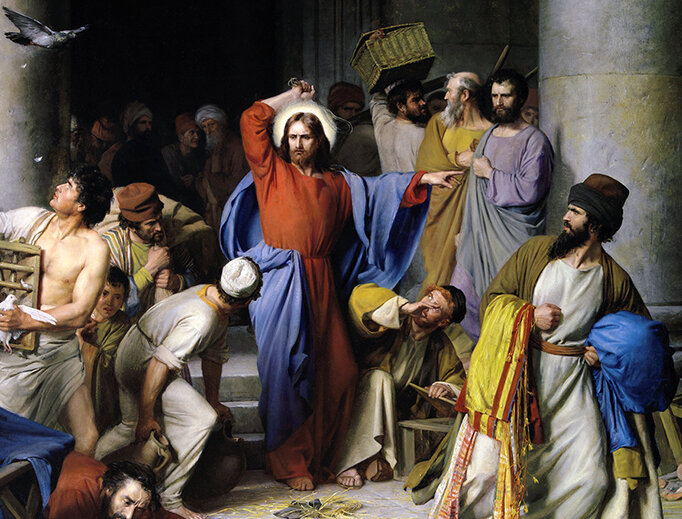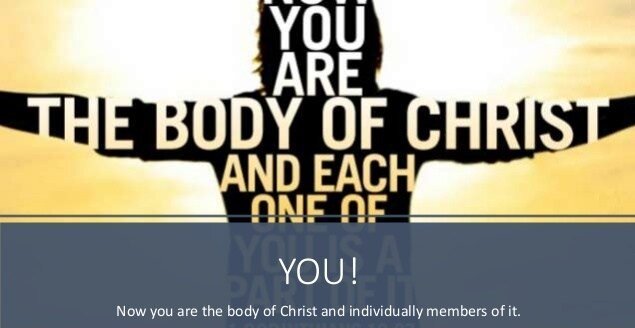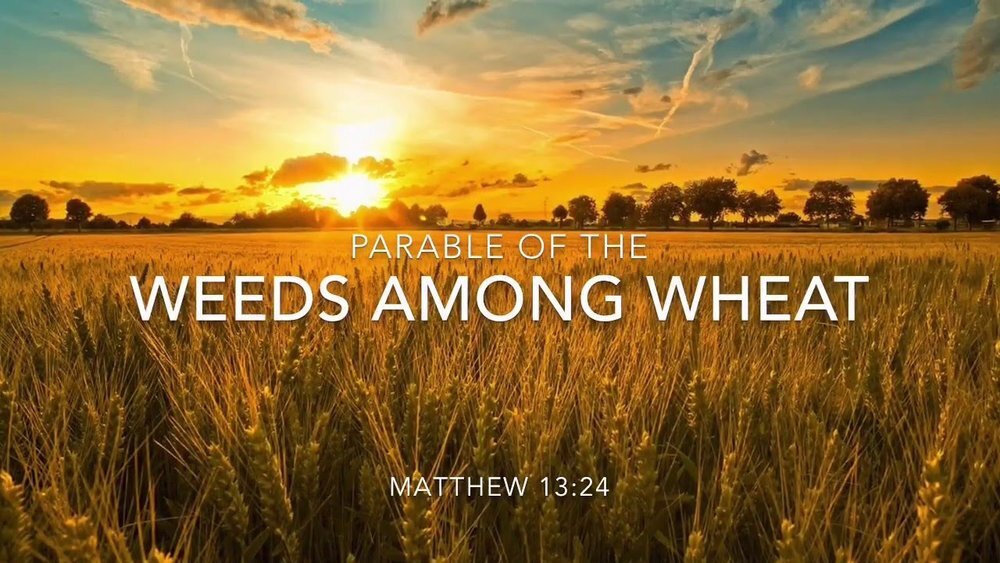In spite of Jesus’ great proclamation of the kingdom of God and the miracles Jesus performed as we heard in the Gospel readings these past weeks like the calming of the sea, the healing the woman hemorrhaging for 12 years, raising the daughter of Jairus from the dead, driving out demons from those possessed, still - Jesus experienced rejection because of discrimination or prejudice because He was the carpenter and they know his family so well as we heard in the Gospel today. In short, he was just too ordinary.
The rejection Jesus experienced reminds us that Jesus shared our humanity in ordinary ways. … but He remained faithful and continued to trust in His Father…
What He cared most about - is to be pleasing to God… being faithful to His Father in heaven and doing the Father’s will.
As God called Ezekiel and Paul as we heard in our first and second readings, Jesus called his disciples, and us –His Church – not so much to succeed as the world defines success, but to be faithful and to trust in God.
St. Paul in our second reading was told when he asked to be healed: “My grace is sufficient or enough for you for my power is made perfect or more obvious in your weakness than in your strength.”
Whether strong or weak these days, remember the counsel of St. Theresa of Calcutta: “You will never know - Jesus is all you need - until the day - when Jesus is all you have.”
… And during the past year and a half many people realized that – hopefully. Reflecting on our experiences during the past year and a half during the pandemic: The question is – Did we learn anything at all from our experiences and are we now much better persons, are we now much better Christians – as individuals and as a community - as we were before the pandemic?
Do we now have a better perspective on who we are - what really matters in life… what life is all about …. particularly in terms of our relationship with God and with one another?
Our Gospel story actually calls us to self-examination – as individuals and as a community… to see if we are faithful to the mission Jesus has given to us - His Church. The purpose of the Church, our mission is to carry on the ministry of Jesus, to continue his work in the world.
Looking at St. Catherine of Siena faith community, is Jesus also going to be amazed at our lack of faith as we heard in the Gospel?
Yes, we are religious… but are we faithful? – in terms of downreach, outreach and upreach. Let me explain those three terms.
First – in terms of down-reach. … The word down in down reach does not mean we look down on the poor because we are the ones who help them. But - down reach in the sense of – being like Jesus who came down from heaven, so to speak. He humbled himself to share in our humanity so we can share in His divinity.
Jesus’ mission is to reveal God’s love to all people, to the greatest and to the least. No one was too lowly to be loved.
John the Baptist, from prison, sent two of his disciples to ask Jesus, “Are you really the Messiah, or should do we start looking for someone else?” Jesus said, “Go and report to John what you have seen and heard: the blind receive their sight, the lame walk, lepers are cured, the deaf hear, the dead are raised up, and the poor have good news preached to them.”
This was Jesus’ work. Jesus said that someday we will have to answer for whether or not we have fed the hungry; did we clothe the naked, have we visited the sick, and did we reach down to the needy. “Inasmuch as you have done it to one of the least of these, you have done it to me.” Jesus was not just interested in “saving souls.”
He was also interested in redeeming lives, making people whole here on earth. This is the work he left to his church... to us.
So, how is our down reach?
Second, how about in terms of out-reach. So what is out-reach?
Jesus said, “You are the salt of the earth.” He said, “You are the light of the world.” Like Jesus, our mission is to gather and unite the People of God. The church of Jesus Christ is a family. We are a family here. It is not only that we are called to recognize each other as brothers and sisters, it is also that we are called to invite other people into this family… to reach out to others.
The “good news” of the gospel is that there is a place at God’s table for everyone… saints and sinners alike - all are invited to enter – to join the family. The church is to open its arms as widely as Christ himself does, and to be as inclusive as the love of Christ.
So – how has been our outreach?
Thirdly – how about in terms of up-reach…as in “we look up to heaven” - the worship of God.
Father Glenn mentioned at the start of the mass that the greatest way America can celebrate the Fourth of July is in thanksgiving and worship of God. In God we trust.
Although – I mentioned down reach and outreach first – actually our first mission is not down-reach, not out-reach. Our first priority is the worship of God.
Why? Because until we have met God in worship, we have nothing to bear witness to. Until we have experienced the Word of God in worship, we have nothing to say. Until we have received sacramental nourishment in worship especially in the sacrament of the Eucharist, we have no power to love or to serve.
That is why – as we re-open please invite your families, relatives and friends to come back – come home to the church to join us in the worship of God.
Jesus gave an important warning to His disciples – to us. He cautioned that if we ever attempted to live our Christian life apart from an intimate relationship with Him, even if we might exert great effort for the kingdom of God, we would discover that we would not produce any significant results. Jesus said that it is not our activity that produces fruit, it is our relationship with Him that matters.
We are always reminded – particularly the clergies - that if we are struggling in our ministries – we need to re-examine our prayer life… and it goes for all of us. If you are struggling in life, re-examine your prayer life.
Let us ask ourselves, do we have a relationship with Christ or relationship only with our religion. Do we personally know Christ or do we know only about our religious practices and what we are supposed to believe?
Is coming to mass still just an obligation for you – a Catholic thing to do – or is it rooted in your own personal relationship with God – to give thanks and praise and worship to` God.
There might be other ways to measure the faithfulness of a church to her mission in addition to down-reach, out-reach, and up-reach.
Pope Francis said: The Catholic Church must be reformed to create a more missionary and merciful church.”
Again - Our calling is not so much to succeed, certainly not by the world’s standards. Our calling is to be faithful, and the Lord who calls us goes with us every step of the way.
The Lord accepts us just as we are.
Jesus said: “Teach them to obey everything that I have commanded you. And remember, I am with you always, to the end of the age. (Matthew 28:20).
God bless… and God bless America.




















